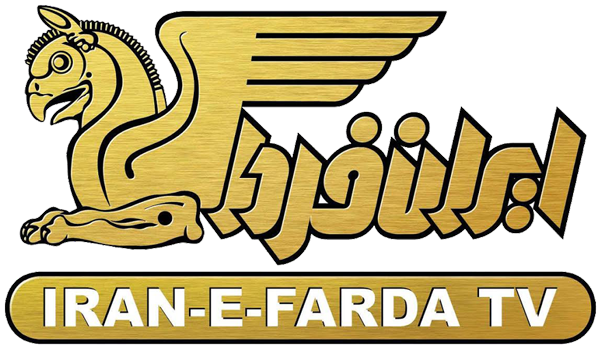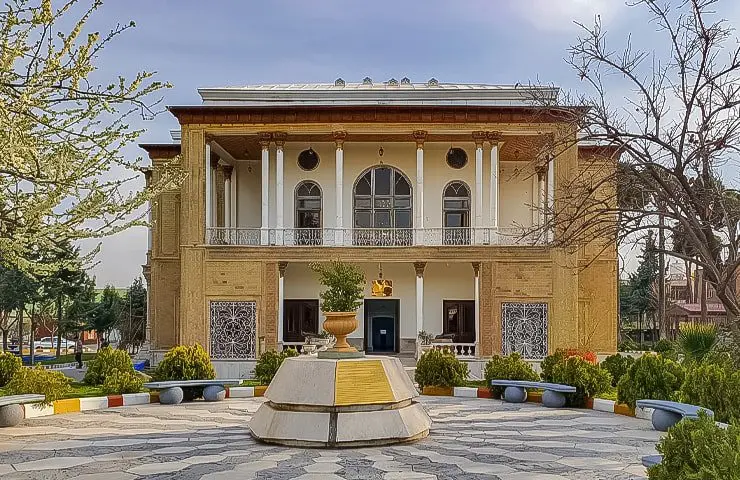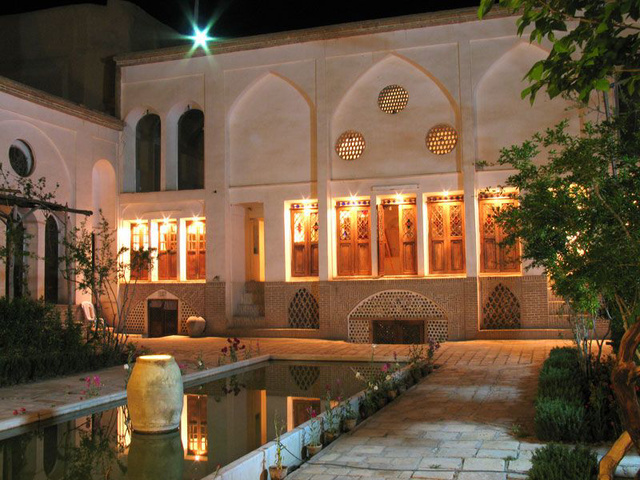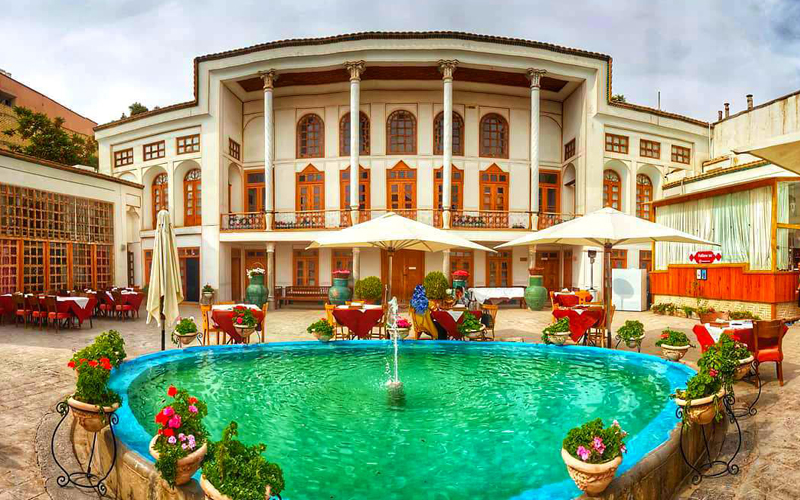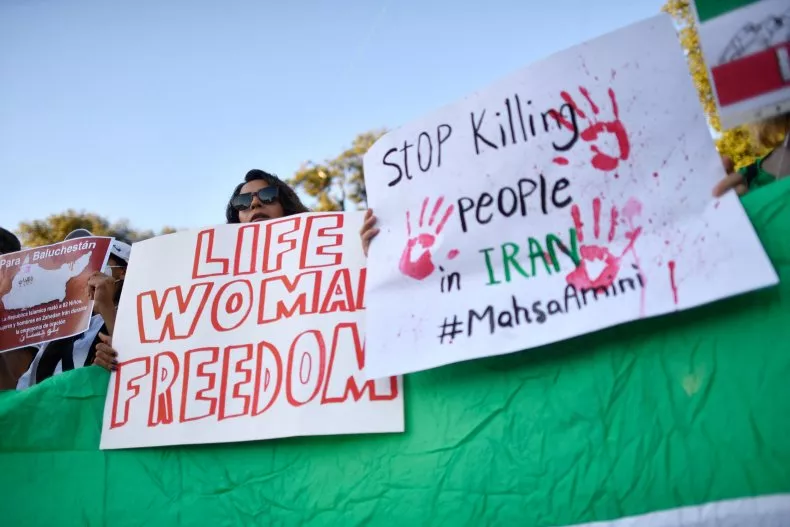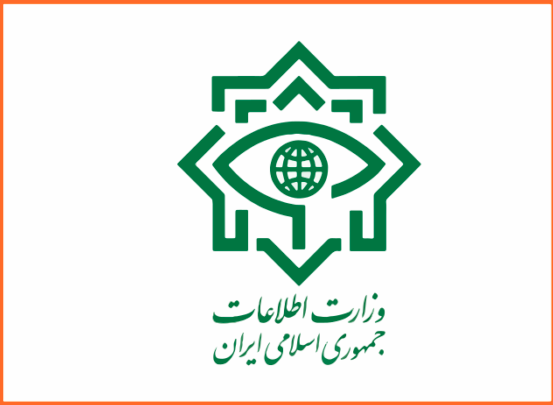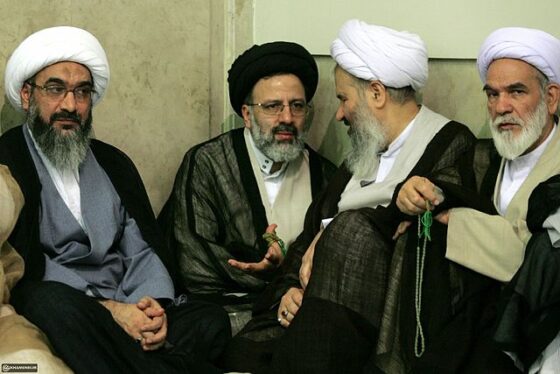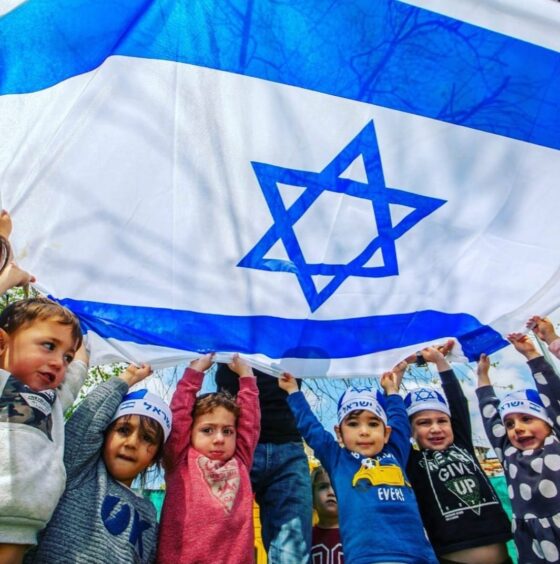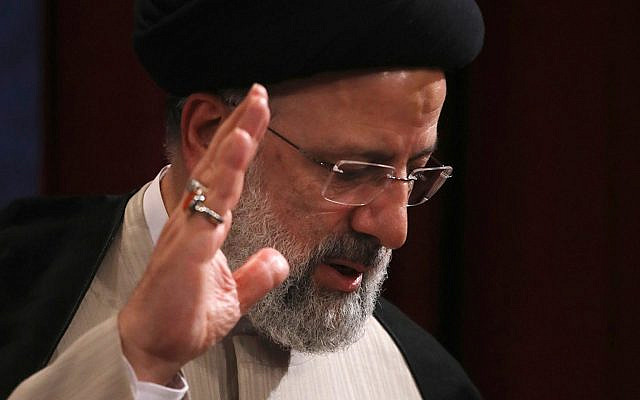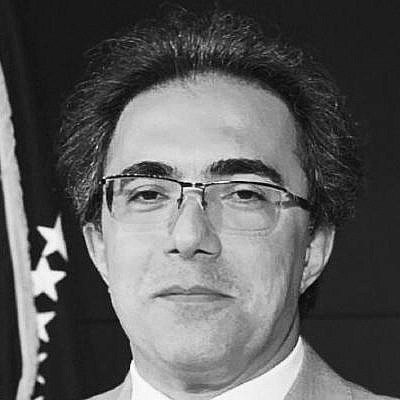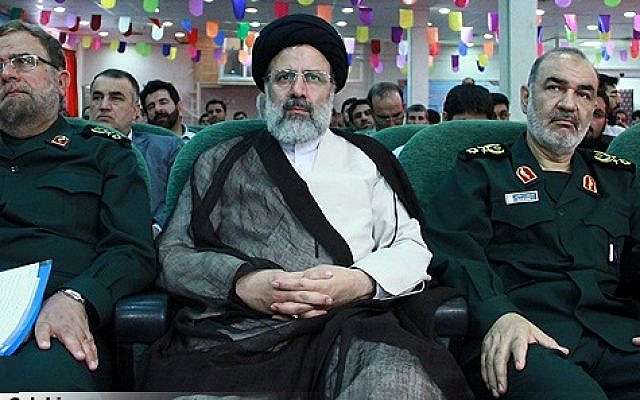A Karachi gangster turned Tehran spy highlights complicated Pakistan-Iran ties
Published on: 2020-08-03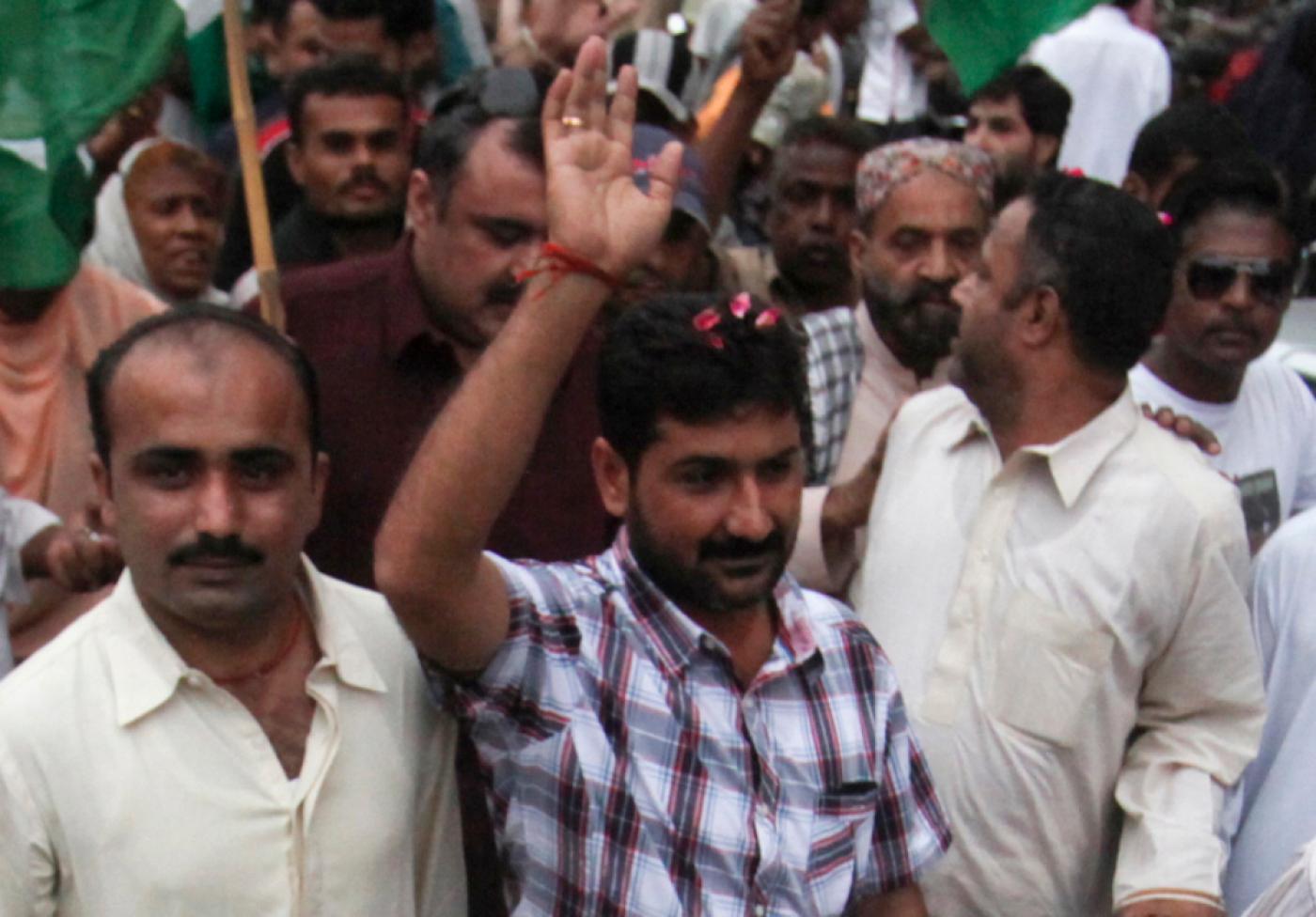
Recent revelations that infamous mobster Uzair Baloch worked for Iranian intelligence expose ramifications of international and local power plays
By Suddaf Chaudry – 2nd August 2020
Earlier this month, a special investigations team in Pakistan revealed that a much-feared Karachi gangster had confessed to spying for Iran.
Uzair Baloch, the leader of the Peoples’ Aman Committee (PAC) group, reportedly fessed up to spying for Iranian intelligence agencies in 2014.
The Sindh province’s Home Department released a report on 6 July detailing allegations that Baloch had provided “secret information and sketches regarding army installations and officials to foreign agents”.
But why are these revelations coming out now? And what does the case reveal about the complicated relations between Tehran and Islamabad?
Criminal minds
A Joint Interrogation Team (JIT) composed of intelligence officers and law enforcement officials has brought charges against Baloch, who was detained in April 2017, for 55 crimes including extortion, drug trafficking, kidnapping and espionage.
The PAC was in 2008 nominally founded as a support group for the Pakistan Peoples Party (PPP), the centre-left political party that has ruled Pakistan for much of its post-independence history. Notorious gangster Sardar Abdul Baloch aka Rehman Dakait, its principle founder, was killed in a police encounter in 2009. Following Dakait’s death, Uzair Baloch took over the
leadership role.
Baloch’s violent and illegal activities in Karachi, the biggest metropolis in Pakistan, led to a severe crackdown on organised crime, subsequently pushing the interior ministry to ban the PAC in 2011 under the Anti-Terrorism Act. Amid a military and police crackdown, Baloch fled to Iran in 2013, thanks to Iranian residency documents he obtained in 2006 via a relative, the JIT report read.
According to the same report, once Baloch settled in Iran after leaving Karachi, he was in contact with a man named Hajji Nasir, who arranged to have him move to Tehran.
While Nasir reportedly offered to help Baloch move to the Iranian capital and grant him free accommodation, it was only later that he shared that he was on good terms with Iranian intelligence agencies and could arrange a meeting.
It was then that Baloch “shared information about certain army installations and armed officials,” according to the JIT report.
There is much confusion regarding Baloch’s arrest. In 2014 Interpol arrested Baloch in Dubai, then the military in Pakistan announced that he was in custody in 2016. As his trial was held at a closed military court, therefore, no details have been shared publicly regarding specific details of the information shared with the Iranian intelligence agencies.
The Inter Services Intelligence (ISI) in Islamabad has not responded to Middle East Eye’s repeated requests for comment. The Iranian consul-general in Karachi meanwhile declined to comment on the case.
Philip Smyth, a fellow at The Washington Institute think-tank, told Middle East Eye that the collaboration of Iran’s Islamic Revolutionary Guard Corps (IRGC) with Baloch was part of a broader strategy of recruitment of criminal gang leaders.
“They don’t simply try to penetrate typical networks that surround singular theological interests, for instance the Shia [Muslim] community. Iranians have historically used criminal networks,” Smyth said, pointing to documents made public by WikiLeaks alleging Iran tried to recruit Mexican criminal syndicate Los Zetas to assassinate a Saudi diplomat in the US in 2011.
Baloch is not the only person accused of carrying out espionage activities in Pakistan with Iranian connections. Indian national Kulbhushan Sudhir Jadhav, who was arrested in 2016 on charges of spying for Indian intelligence, was believed to have entered Pakistan’s Balochistan province via Iran that year.
“When you have someone as powerful and dangerous as Baloch confessing to formally cooperating with Iranian intelligence agencies, it has some pretty big implications for Pakistan’s foreign policy,” Michael Kugelman, the deputy director of the Asia Programme at the Washington DC-based Wilson Center, told MEE.
“The Iran-Pakistan border issues are mainly affected by the sectarian rivalry between Iran and Saudi Arabia. For Pakistan, this is a costly and difficult diplomatic situation at this time.”
A porous border
Baloch reportedly stated during interrogation that the Iranian government has been providing major support to violent groups in Pakistan, raising troubling questions about Iran’s role in the neighbouring country.
The porous 900km border between Iran and Pakistan has been home to several militant hideouts. This area, known as the Pakistan-Iran Barrier, has witnessed a surge in attacks in the last two years, prompting both countries to blame the other for not investing more resources to remove the militant threat.
With Iran’s economy badly hit by US-led sanctions, the border has become a crucial avenue for the black market.
“Right now, the shift into broader criminality comes due to a variety of reasons,” Smyth said. “Firstly the sanctions’ pressure and the need to diversify [Iran’s] funding.
“It is also a way to exert pressure on Islamabad if Pakistan has to deal with criminality, potential for violence, and then other political ramifications that can arise from that.”
The Pakistani coastal region of Makran next to Iran has been transformed by the illegal smuggling of diesel, a trade that operates with local enforcement approval.
Taftan Mohammed Waris, Assistant Commissioner – a senior civil servant – for Quetta told MEE that “border issues are not part of my remit”.
“I’ve only been posted in this role for two months,” he said.
However, Waris was part of a Pakistani delegation who met with Iranian counterparts to discuss illegal border crossings in April. Many analysts have raised doubts regarding Pakistan’s denial of complicity in the cross-border smuggling in Makran.
Militia recruitment
The new IRGC Quds Force commander, Esmail Ghaani, who succeeded Qassem Soleimani following the latter’s assassination in January, has long focused his career on Afghanistan and Pakistan. He notably played a pivotal role in building Quds Force ties with Shia Muslim militias hailing from Afghanistan and Pakistan.
While Baloch’s alleged espionage and arrest predate Ghaani’s rise to Quds Force leadership, his appointment to lead the prominent military intelligence unit has drawn attention to Iranian operations in Pakistan, given the country’s significant Shia population, with some estimates putting it at up to 20 percent of the country’s 220 million people.
Smyth, who produced a project on Shia militias for The Washington Institute, told MEE that “the IRGC has recruited hundreds of Pakistani Shia for direct roles within IRGC-run armed groups like Liwa Zainebiyoun,” a Pakistani-majority brigade fighting in Syria in support of President Bashar al-Assad.
Smyth estimates that Liwa Zainebiyoun counts anywhere between 1,500 and 3,500 members.
A recent report by Pakistani news agency Samaa estimated there were more than 250 active Pakistani fighters in Syria.
“A good number of Shia organisations and clerics in Pakistan are open supporters of Iran’s transnational Islamist ideology of absolute Wilayat al-Faqih [Guardianship of the Jurist]. Thus, Iran has a more solid base there,” Smyth said.
“Based on my research, Iran’s focus on Pakistan has not decreased – not one bit. They are still recruiting and seeking ways to operationalise and grow their links in the country.”
Alex Vatanka, the director of the Iran programme at the Washington-based Middle East Institute, disagrees.
“Ghaani is not a strategist like Qassem Soleimani, he will only operate once a mandate is given on Pakistan,” he said.
However, Vatanka said Pakistan was well aware of Iran’s track record in recruiting Shia proxies to help them achieve their goals in the region.
Silence in Tehran, silence in Islamabad
Amid the complicated ties between Iran and Pakistan, why has it taken three years for the revelations made by Baloch during interrogation to be made public?
Between the announcement of Baloch’s arrest in 2017 and the recent publication of the JIT report, the Pakistani army had shared no further details on the espionage charges. “Islamabad has been relatively quiet and not been explicit in accusing IRGC of having a hand in helping Pakistani militants,” Vatanka said.
Meanwhile, Tehran has yet to issue any comments on the case.
“Timing is important, but the legal situation in Pakistan is often lengthy,” Kugelman said.
He nonetheless hypothesised that Baloch’s ties to the PPP could be an instrument used by Pakistan Tehreek-e-Insaf (PTI)-led government “to hurt the opposition, to expose their shortcomings by having a connection with a criminal who has been colluding with the Iranians”.
However, the question remains whether members of the PPP who were closely affiliated with Baloch ever knew he was spying on behalf of the Iranian government.
The reason why Islamabad hasn’t been far more vocal about the Iranian support to armed militias in the region may further be tied to concerns within Pakistan. Internal religious tensions have played a role in convincing some Shia Pakistanis to join Iran-backed militias, according to a recruiter based in Karachi who spoke to MEE on condition of anonymity.
“We recruit from Karachi; it’s easier in the upscale neighbourhoods. But otherwise my network extends to KP [Khyber Pakhtunkhwa] and Parachinar,” he said, referring to a Khyber Pakhtunkhwa city close to the border with Afghanistan. “We arrange the financials and many are willing. Shias are not treated well in Pakistan, they are ready to take revenge.”
For Vatanka, “Islamabad tends to downplay the number of Pakistani Shia fighting in Syria; they are probably greater in number given the fact it has the third-largest Shia community in the world.”
“If you are Iran and you are struggling to recruit people for your ideological cause, Pakistan is a natural place to recruit to fight under the Zainebiyoun or IRGC flag,” he said.
For Kugelman, these practical political considerations have tempered Pakistan’s tone towards its neighbour.
“The sizeable Shia community in Pakistan, which is about 20 percent of the population, is why you don’t hear Islamabad commenting on the border issues with Iran,” he said.
“This is an acknowledgement that this is a very sensitive issue not just for Pakistan’s international relations, but for its internal stability.”
https://www.middleeasteye.net/news/pakistan-iran-gangster-uzair-baloch-spy-diplomacy
